Six researchers working in areas ranging from the prevention and treatment of heart attacks to the social effects of religion have had their efforts recognised with Early Career Researcher Awards.
The awards recognise outstanding research achievements by early career staff. They are selected for outstanding research achievement, with emphasis being given to achievement during their appointment at the University of Otago.
The awards went to Dr Philip Adamson (Medicine), Dr Sebastian Gehricke (Accountancy and Finance), Dr Anna Gosling (Anatomy), Dr Jemma Geoghegan (Microbiology and Immunology), Dr Joseph Watts (Social Sciences) and Dr Amandine Sabadel (Zoology).
Each award recipient receives a $5000 grant towards their research and membership to the Otago ECR Forum, which advocates for and promotes research, and facilitates networking and collaboration among early to mid-career researchers at Otago.
Deputy Vice-Chancellor Research and Enterprise Professor Richard Blaikie, who chairs the awards selection panel, says it is heartening to see the level of talent and commitment shown by Otago's early-career researchers.
“We're delighted to be able to recognise the significant achievements that have been made by these outstanding early-career researchers and will be following their careers with great interest.”
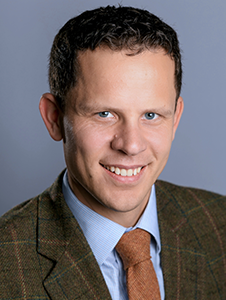 Dr Philip Adamson
Dr Philip Adamson
Dr Philip Adamson (Department of Medicine)
Dr Philip Adamson's growing body of internationally-acclaimed work focuses on the prevention and treatment of heart attacks.
The Christchurch campus-based clinical cardiologist and senior lecturer within the Department of Medicine's Christchurch Heart Institute says clinical research often progresses incrementally with long periods of hard work before the ultimate impact of that work is known.
“As a consequence, this award is a greatly appreciated indicator that the University recognises the value of this ongoing effort,” Dr Adamson says.
The 2019 Heart Foundation Senior Fellow is currently principal investigator on three cardiovascular trials focused on coronary atherosclerosis - hardening of the heart's arteries.
One Health Research Council of New Zealand-funded hospital study is testing whether a less invasive form of heart imaging using cutting-edge CT scanners (readily available in many hospitals nationwide) could reduce the need for traditional catheter-based coronary angiograms for patients with suspected heart attacks.
The new CT scans, if successful, could allow more patients to remain in their local hospital for treatment, rather than face travel to a larger centre for a catheter-based angiogram. This would benefit not just the patient and their whānau but the health system too, such as reducing demand on operating rooms.
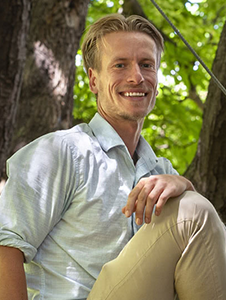 Dr Sebastian Gehricke
Dr Sebastian Gehricke
Dr Sebastian Gehricke (Department of Accountancy and Finance)
Although having achieved his PhD less than four years ago, Dr Sebastian Gehricke is already making his mark.
His focus has become sustainable finance research and teaching, which aligns with his off-grid lifestyle and is a field where academic research can have real life impacts on people and the planet.
The Senior Lecturer has published extensively, attained significant funding, supervised several post-graduates and co-leads a successful research theme.
He is actively engaged with media, industry, policymakers and the general community, and
has already supervised two PhD and 11 Master's students, completed 12 journal reviews and examined three PhD dissertations.
“The shift from my initial focus on derivatives and theoretical asset pricing to sustainable finance was driven by my passion to have the most positive impact possible,” Dr Gehricke says.
“In my personal life I have built an off-grid tiny house, powered by solar and watered by the rain, and I am growing more of my own food every year.
“This personal journey really accelerated seven years ago when my daughter Aurelia was born.”
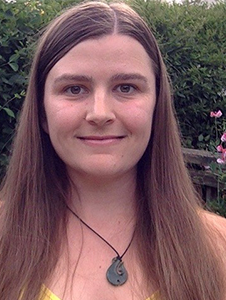 Dr Anna Gosling
Dr Anna Gosling
Dr Anna Gosling (Department of Anatomy)
Dr Anna Gosling is a Research Fellow in the Department of Anatomy, with a transdisciplinary approach to addressing questions about Pacific health.
Focused on understanding the patterns of genetic variation seen in human populations, her award-winning research identified that individuals who might have a genetic predisposition for hyperuricaemia would potentially have a faster and more efficient immune response to a malaria infection.
“This may have been beneficial for people living in malarial areas, but unfortunately, when these individuals moved into non-malarial environments, like Polynesia, this left them with hyperuricaemia, which contributes to gout, diabetes, obesity and heart disease,” Dr Gosling says.
Her two papers describing this research are highly cited and her dissertation was awarded an exceptional PhD award.
In 2019, she was both awarded a Rutherford Post-doctoral Fellowship and her research served as one of the first multidisciplinary Marsden Council Grants.
She has been directly responsible for recruiting and supervising two Pacific PhD students, one from Guam and one from Kiribati, who are currently enrolled at Otago.
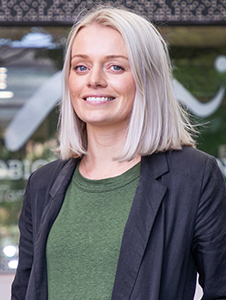 Dr Jemma Geoghegan
Dr Jemma Geoghegan
Dr Jemma Geoghegan (Department of Microbiology and Immunology)
A leader in the field of evolutionary virology, Dr Jemma Geoghegan is a Senior Lecturer who has published over 50 peer-reviewed scientific articles.
“My research focuses on determining the fundamental patterns and processes of viral evolution, ecology and emergence,” Dr Geoghegan says.
“This work is funded by a Rutherford Discovery Fellowship, a Marsden Fast Start Grant and a recently awarded Health Research Council project grant.
Dr Geoghegan also has a joint position with the Institute of Environmental Science and Research and helped establish the genome sequencing of SARS-CoV-2 in New Zealand through funding from MBIE's COVID-19 Innovation Acceleration Fund grant.
Her findings have won several awards including the Prime Minister's MacDiarmid Emerging Scientist Prize, the Tall Poppy Award in Australia and the Genetics Society of Australasia Alan Wilton Award.
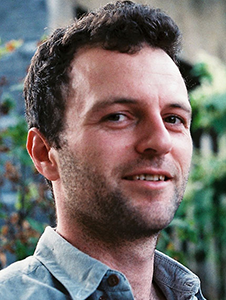 Dr Joseph Watts
Dr Joseph Watts
Dr Joseph Watts (School of Social Sciences)
Religion Programme Lecturer Dr Joseph Watts investigates how human evolution, culture and cognition interact. He is a member of Otago's Centre for Research on Evolution, Belief and Behaviour and leads Marsden grant research on the cultural evolution of theory of mind in the Pacific. He is also involved with projects investigating cross-cultural patterns in religious belief and behaviour.
Prior to coming to Otago in 2020, Dr Watts was a Research Fellow in the Social and Evolutionary Neuroscience Group at the University of Oxford, as well as a Postdoctoral Researcher in the Department of Linguistic and Cultural Evolution at the Max Planck Institute for the Science of Human History. He continues work with the Institute as an external Research Associate.
"I have been lucky to work with an outstanding and supportive team of colleagues and collaborators. This award will help develop LexiCog, a cross-language dataset of mental state vocabulary.
“The LexiCog database will form the basis of my future studies and provide an open access resource to anyone interested in how people conceptualise the mind across cultures."
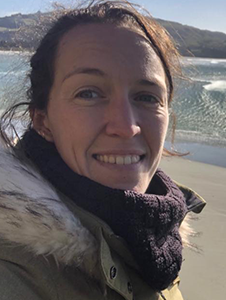 Dr Amandine Sabadel
Dr Amandine Sabadel
Dr Amandine Sabadel (Department of Zoology)
As an environmental scientist, Dr Amandine Sabadel's work across chemistry and ecology is applied to ecosystems and food web dynamics.
Dr Sabadel joined the Department of Zoology as a Research Fellow in 2020 and concurrently holds a position as a stable isotope ecologist consultant with NIWA. Her experience in analytical chemistry and leading-edge compound-specific stable isotope analysis techniques, has grown her expertise in reconstructing energy links between organisms, and between organisms and their environments.
Born and raised in France, Dr Sabadel moved to New Zealand to complete her Doctorate at Otago in stable isotope ecology and oceanography in 2015. Since then, she has received several significant grants, including a Royal Society Te Apārangi Marsden Fast-Start, and more recently a Catalyst seeding grant to explore parasite-fish trophic interactions to inform environmental and human health policies.
Dr Sabadel says, “I have a particular interest in biochemical reactions and biomass transfer that can be applied to a huge range of areas, so I'm really happy to be receiving this award and seeing trans-disciplinary research being recognised in this way."
- Kōrero by Andrea Jones
